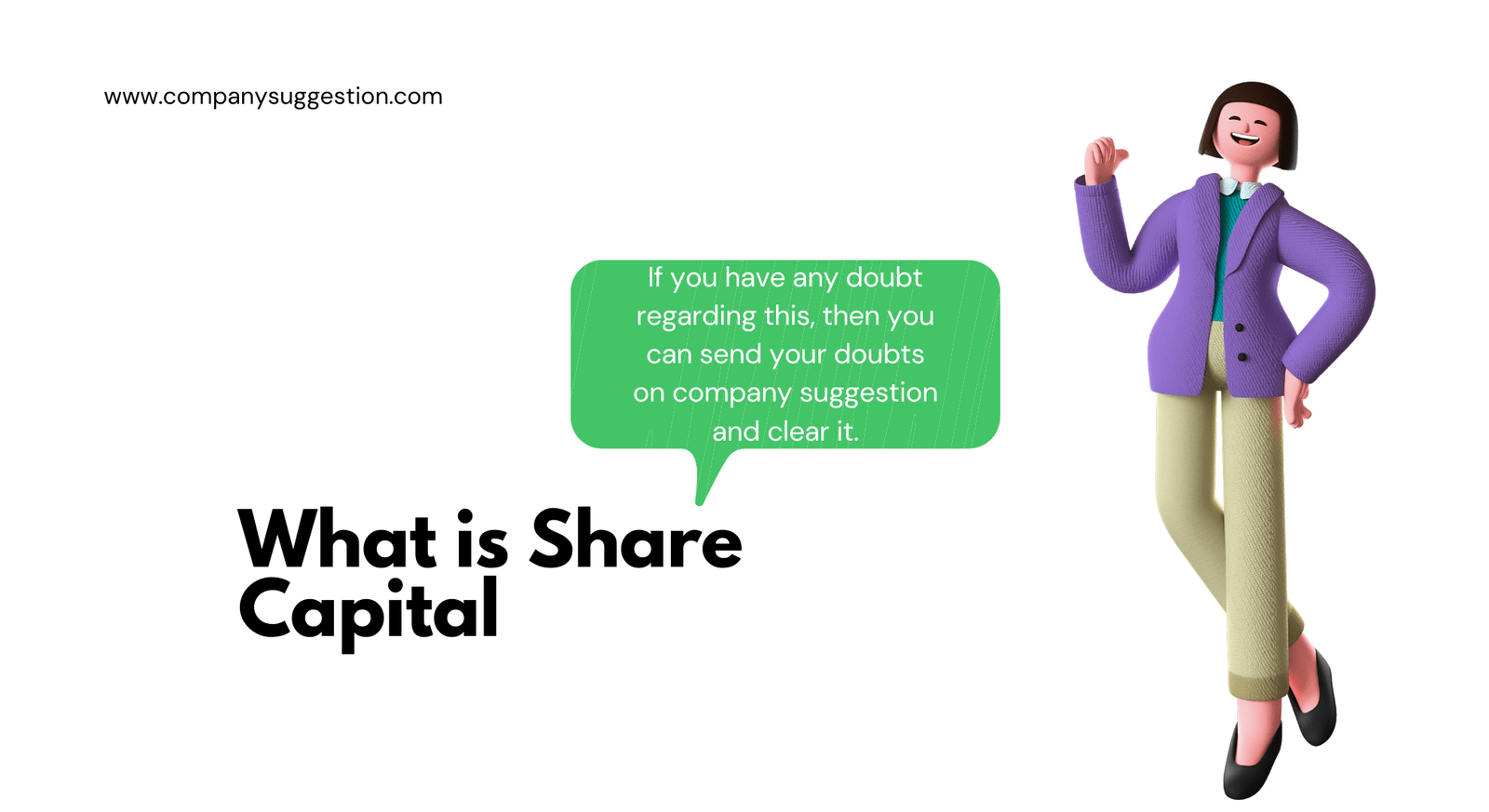Introduction
In accounting, the share capital is a amount raised through the sale of share and it also include money raise by issuing common or preferred stocks. The amount of share capital is increased through additional public offerings. The share capital of a company is the sum of the nominal share capital and premium share capital.
Type of share capital
These are the type of share capital:
1.Authorised capital
A company’s authorised share capital is a capital which is accepted from the investors of the corporation by issuing shares that are listed in the firm’s official documents in known as authorised share capital. It is also known as Nominal Capital or Registered Capital.
According to section 2(8) of companies Act, 2013, the limit of Authorised Capital is set by the Capital Clause in the Memorandum of Association.
In order to issue more share, the firm has the authority to take the necessary actions to expend the limit of authorised capital but it is not permitted to issue share that exceed the limit of authorized capital in any case.
Issued share+ unissued share = Authorized Share.
2. Issued Share Capital
The part of Authorized Share Capital that is issued to the public for subscription is known as Issued Share Capital. The par value of the issued share capital cannot be more than the value of the authorized share capital.
3. Subscribed Capital
Subscribed Capital is the portion of issued Capital which has been taken off by the public. It is not compulsory that the issued Capital is fully subscribed by the public. It is that part of the issued Capital for which the application has been received by the company
4. Called-Up Capital
Called up Capital is the part of the Subscribed Capital, which includes the amount paid by the shareholder. The company does not receive the entire amount of Capital at once. It calls upon the portion of subscribed Capital in instalments when needed. The remaining part of the Subscribed Capital is called Uncalled Capital.
5. Paid-Up Capital
The portion of Called-up Capital which is paid by the shareholder is called Paid-up Capital. It is not necessary that the amount called by the company is paid by the shareholder. The shareholder may pay half amount of the called up Capital, which is called as Reserved Capital. As the name reserve means to keep some amount in the treasury of the company. This is quite useful in case of winding- up of the company.
Why do Companies issue Share to the Public?
Company issue shares in order to raise capital or to fund their business operations, meet financial needs and expand the business. The applicant becomes shareholders in the company after the acceptance of shares by the company and they get voting right on the matters of corporation policy.
Company issue different types of shares to the public namely: ordinary shares, preference shares, share without voting rights or any other share that are approved under the law.
Why do Investors buy Shares from the Company?
Shares are one of the best long term investments for an individual. But at the same time, it involves risk too.
Investors buy shares in companies to generate wealth for themselves in the form of return on their investment. Return on these investments comes from dividend distributions that increase the share value.
Buying shares in the companies indicates that the investor owns a part of that company, that allow him to enjoy profit of the company.
If you have any doubt regarding this, you may contact company suggestion.













